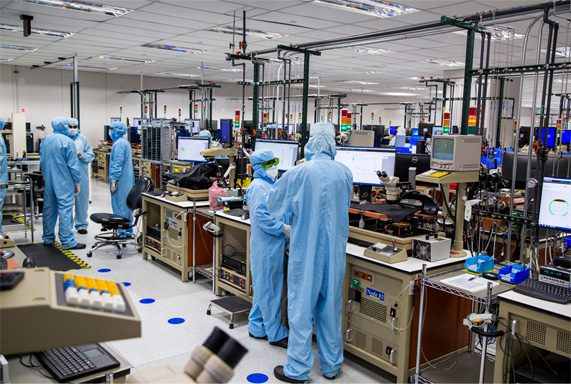In February last year, during a dinner attended by Silicon Valley luminaries and President Barack Obama, a question about bringing iPhone manufacturing back to the United States led to a candid response from Apple’s Steve Jobs. The ensuing conversation unveiled the stark reality that a significant portion of Apple’s products, including 70 million iPhones, 30 million iPads, and 59 million other devices, are now manufactured overseas, raising questions about the feasibility of domestic production.
Presidential Inquiry into Domestic Manufacturing
President Obama’s inquiry into the possibility of producing iPhones in the U.S. prompted Jobs to assert that these manufacturing jobs were not destined to return. The dialogue highlighted a central conviction at Apple, where executives believe that overseas factories’ scale, flexibility, diligence, and industrial skills surpass those of their American counterparts, rendering “Made in the U.S.A.” an impractical option for most Apple products.
Apple’s Global Operations
Apple’s global success, earning over $400,000 in profit per employee, has made it a leading and admired company worldwide. However, concerns arise as Apple, along with its high-tech peers, appears less committed to creating American jobs compared to historical giants like General Motors and General Electric.
Jobs and Economic Implications
While Apple employs 43,000 people in the U.S., its overseas workforce of 20,000 is a fraction of the workforce once seen in American manufacturing heydays. Additionally, around 700,000 people work for Apple’s contractors globally, contributing to the assembly and engineering of Apple products.
Apple’s Defense and Obligations
Apple executives argue that going overseas is currently their only option. They cite the speed, flexibility, and scale of overseas factories as unmatched by American counterparts. However, this perspective raises broader questions about corporate responsibility and what successful companies owe to the American workforce.
The Changing Landscape of Manufacturing
The shift to foreign manufacturing at Apple is attributed, in part, to Timothy D. Cook, who, in 2004, advocated for overseas manufacturing due to the advantages of faster scalability and more advanced Asian supply chains.
Challenges in American Manufacturing
One of the key challenges cited by Apple and other companies is the difficulty in finding a technical workforce in the U.S. with the necessary mid-level skills. This has led to a reliance on foreign workers, especially in Asia, where the workforce can be quickly scaled up.
The Glass Screen Imperative
The demand for an unscratchable glass screen for the iPhone in 2007 exemplifies the challenges and decisions Apple faces. The last-minute redesign necessitated reliance on a Chinese factory, showcasing the speed and flexibility that American plants struggle to match.
The Global Supply Chain
Apple’s story is not unique; outsourcing has become a common practice across various industries. The allure of cost savings, skilled labor, and rapid production cycles has driven many companies to rely on overseas manufacturing.
The Economic Impact
Apple’s success has undoubtedly contributed to the economy, empowering entrepreneurs and creating jobs indirectly. However, the question remains: Does Apple, as a corporate giant, bear a responsibility to directly address unemployment and job creation in its home country?
Apple’s Profits and Responsibilities
Apple’s remarkable financial success, marked by soaring profits and a surging stock price, has positioned it as one of the most valuable and influential companies globally. While these financial achievements have undeniably benefited shareholders and top executives, questions have been raised about Apple’s social and ethical responsibilities, particularly in the context of job creation and economic impact in its home country, the United States.
Financial Triumph and Shareholder Enrichment
In the fiscal year where Apple’s revenue exceeded $108 billion, shareholders reaped significant rewards. The soaring share price, which has seen remarkable growth since the stock split in 2005, has enriched millions of individual investors, 401(k) accounts, and pension plans. This financial success has solidified Apple as one of the most widely held stocks, contributing to the wealth accumulation of a broad spectrum of investors.
Employee Compensation and Stock Awards
Beyond shareholder gains, Apple’s employees and directors have also benefited substantially from the company’s prosperity. In the same fiscal year, besides their regular salaries, Apple’s employees and directors received stock awards worth $2 billion. The exercise or vesting of stock and options added an additional $1.4 billion, highlighting the significant financial incentives tied to Apple’s stock performance.
Corporate Philanthropy and Social Initiatives
While Apple has engaged in corporate philanthropy and social initiatives, such as its commitment to combatting climate change and its investments in education and workforce development, the scale and impact of these efforts have been scrutinized. Some argue that given Apple’s unprecedented wealth, a more substantial commitment to social responsibility, particularly in job creation and economic development, should be expected.
Job Creation and Economic Impact in the U.S.
As Apple’s profits have surged, concerns have been raised about its contribution to job creation in the United States. The company employs 43,000 people in the U.S., a fraction of the workforce historically associated with major American corporations. The shift towards overseas manufacturing, as acknowledged by Apple executives, has limited the direct impact on domestic employment.
Balancing Global Operations and National Responsibilities
Apple’s executives argue that their primary obligation is to create the best products for consumers globally and not to solve America’s economic challenges. While the globalization of operations has undoubtedly contributed to Apple’s efficiency and profitability, it prompts a broader conversation about the responsibilities of multinational corporations to the countries where they originated.
Corporate Leadership in Shaping the Future
Apple, with its influential position in the technology industry, has the potential to influence not only consumer trends but also broader economic and social dynamics. The choices made by Apple’s leadership regarding job creation, supply chain ethics, and environmental sustainability will play a crucial role in shaping the company’s legacy and its impact on the world.
The Future of American Manufacturing
As the debate over the future of American manufacturing continues, structural changes are deemed necessary for a resurgence. Whether corporations like Apple will play a role in reshaping the manufacturing landscape, and the potential impact on the American economy, remains a critical question.
In conclusion, Apple’s globalization dilemma presents a multifaceted challenge, raising questions about the balance between corporate success, profits, and social responsibility in an interconnected world. As the manufacturing landscape evolves, the choices made by companies like Apple will undoubtedly shape the future of American jobs and the broader economy.









